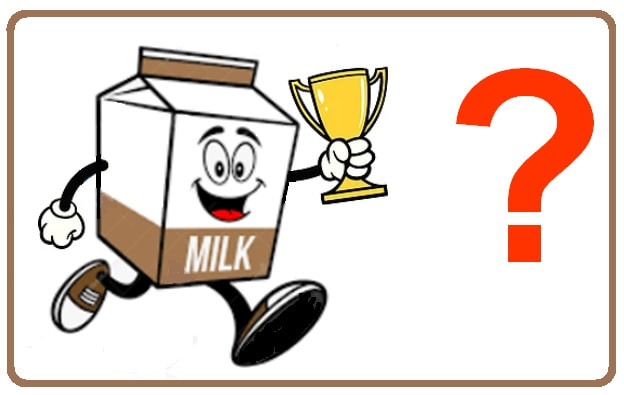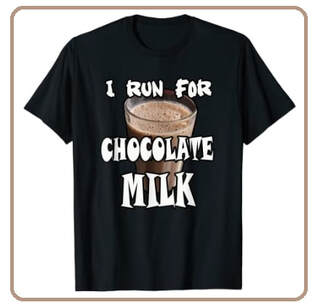Q - Mr. Coach – Would you mind giving your perspective on Chocolate Milk as a recovery drink after workouts? I’ve read loads of magazine articles saying how great it is and they mention studies. But is there really any sound scientific basis? Thanks.
A - I like the Mr. Coach...
Yes, there’s certainly been many articles on this topic in recent years, such as THIS. And with the successful marketing of so many “recovery drinks’, it's no wonder that eventually it would spawn the scientific community to take a look see.
Makes sense...Why? Well, because chocolate milk contains carbohydrates (CHO), proteins (PRO), and fat, as well as water and electrolytes - the same ingredients that are promoted in the specialized recovery drinks.
So studies began: some controlled; some not so controlled.
But In 2019 a group published a scientific review of carefully selected legitimate studies comparing the benefits of chocolate milk vs. "sport drinks. And they published the results of their review in the respected peer-reviewed European Journal of Clinical Nutrition.
The paper's rather imposing title is Chocolate milk for recovery from exercise: a systematic review and meta-analysis of controlled clinical trials (published in the European Journal of Clinical Nutrition volume 73, pages 835–849 (2019).
NOTE - Quite often only Abstracts of such scientific papers are available online to non-subscribers of the publication. So, in case you want to read the full paper, I have provided a link to it HERE. You're welcome.
Be warned its a tedious document to read - a statistician's glorious dream, but here’s the deal:
The team systematically reviewed the evidence regarding the efficacy of chocolate milk compared to either water or other “sport drinks” on post-exercise recovery markers, such as, heart rate, perceived exertion, lactate levels and Time to Exhaustion , etc.
And what is Time to Exhaustion (TTE) ? you might ask. Well, an example from one of the papers reviewed had subjects exercise for 45 min, followed by a 3-hour break. During the break they consumed chocolate milk or another beverage. They then repeated the exercise without the aid of knowing time until they could no longer continue (i.e., they were exhausted). Sounds like fun eh?
Anyway, their conclusion was chocolate milk "consumption after exercise improved TTE compared to placebo or CHO + PRO + FAT drinks. Furthermore, CM consumption led to lower blood lactate compared to placebo. Therefore, CM either provides similar or superior results on recovery indices compared to other recovery drinks and thus represents an alternative and often economic replacement."


 RSS Feed
RSS Feed
